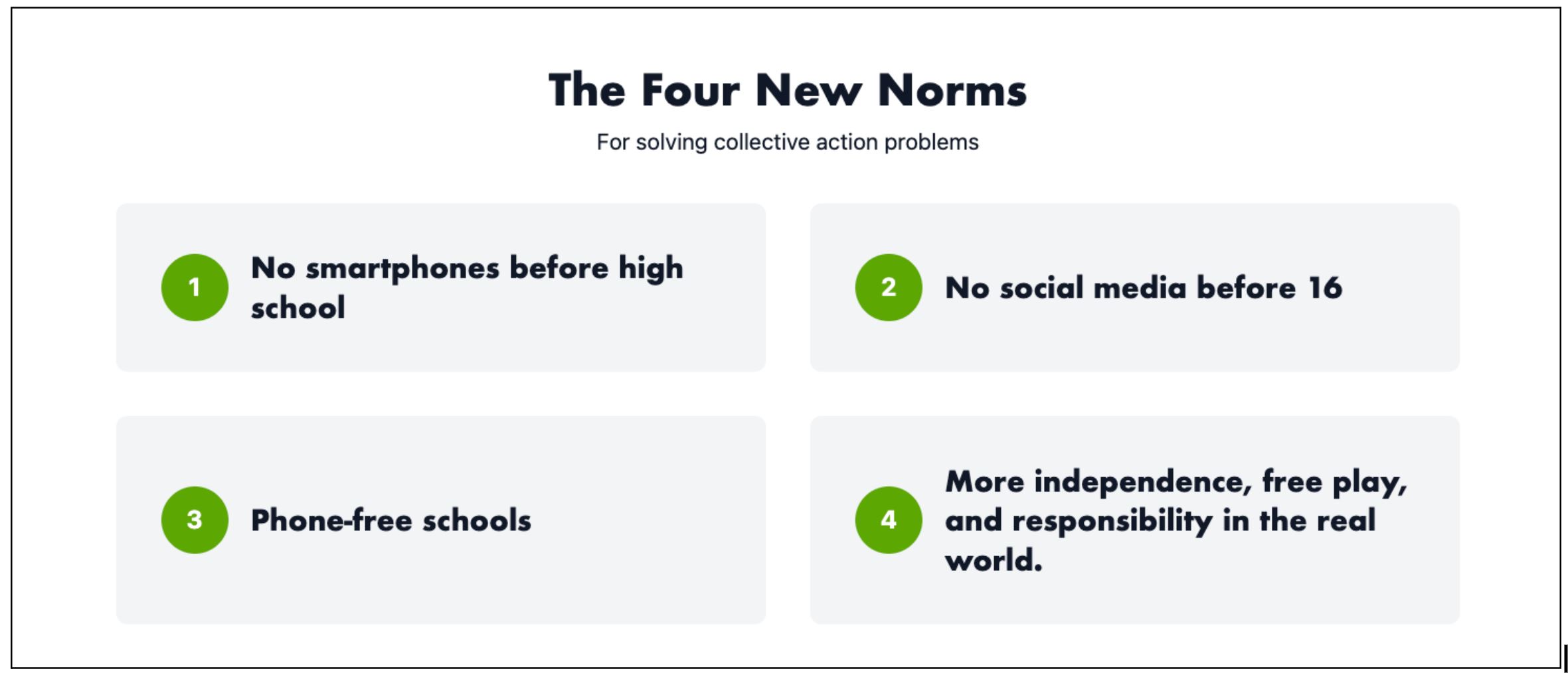by Lisa Babinet | WSP Faculty Member
I was so eager to read Jonathan Haidt’s The Anxious Generation that I started listening to the audiobook the morning it was released. I had heard the book would speak to my growing concerns about teenage mental health. Having started my teaching career in 1980, recently I have seen quite a few changes in the culture of today’s teens, and even more so, since COVID-19, I have been concerned with the impact of technology and social media on their lives. Don’t get me wrong, our students are amazing and I am continually impressed with our younger generation in many ways. Jonathan Haidt’s book presents scholarly research that supports what we as Waldorf teachers have known for a long time about healthy practices for children, and it provides guidance about what we can do given the current climate. The research confirms that a play-based childhood is essential for healthy child development. For me, this is a watershed moment as the author provides the foundation for society to adjust our norms to support our children.
My big takeaways are:
- Since the widespread adoption of the smartphone, children are now experiencing a phone-based childhood rather than a play-based childhood. Haidt articulates the importance of free play for child development, and how modern children have been experiencing less and less of it. Waldorf Schools emphasize free play throughout the grades. For example, it is quite common for me to have trouble exiting my office during recess as I need to navigate the raucous game of “grounders” the middle schoolers play. Having read The Anxious Generation, I am now re-reminded of the benefits of this free play – physically, socially, and intellectually. It fills my heart with joy each time I see them.
- It is important to have a phone-free environment for children. At our high school we have implemented cell phone lockers so that students are freed up to be present with each other, and for their classes, without distractions. As I walk around during my day, I witness wonderful interactions where students are engaged with each other. I also have heard from students after they have gone on week-long trips without their cell phones that they find great value in being disconnected from technology. Often these trips serve as a touchstone for them to make healthtier boundaries around technology as they have experienced the gift and positive impact of being technology-free for an extended period of time.
- Haidt points out how as parents we have become more overprotective in the real world while under protective online. As I read through his charts and graphs, as well as his reminder that the aim of social media is to “capture eyeballs”, he indicates that students are not yet developmentally ready to make conscious decisions when faced with social media until age 16. (He actually recommends age 18, but realizes that it would be difficult to implement.)
- Haidt recommends that students do not have smart phones until high school, which resonates with my experience. He illustrates the power of communities and schools in helping families wait until high school for students to have a smartphone.
The development of digital technology happened quickly, and much of it before we truly understood its impact on child development. Haidt brings research and data to what Waldorf Pedagogy has been saying for years – children need free play, we should delay the introduction of screens (although he says some uses, such as face-timing with family members, are fine), and that when a community or school agrees to norms (such as our cell phone locker policy in the high school), it’s better for everyone.
Then, the cherry on top was when I heard him mention Waldorf School of the Peninsula specifically as a place that supports healthy childhood development. I had to rewind to be sure, but yes, indeed, our wonderful school is mentioned in the book. I truly hope it will be a catalyst for changes that will support a culture of healthy child development. At the very least, it confirms the importance and positive impact of what we do here at WSP.
Lisa Babinet has been teaching at WSP since 2003. She is blessed to be the mother of two adult children who attended WSP from K-12, and considers providing her children with a Waldorf Education to be the best parenting decision she has made.
REFERENCES AND RESOURCES
- The book:
The Anxious Generation: How the Great Rewiring of Childhood Is Causing an Epidemic of Mental Illness (March 26, 2024)
(Books Inc., Amazon) - If you only have a few minutes, see this overview by Haidt on his Author website.
- The author: Jonathan Haidt, Social Psychologist, NYU Stern School of Business, co-author of The Coddling of the American Mind.
- The website: www.anxiousgeneration.com. More than a book; they’re aiming to launch a movement.
- Above image, Haidt’s “Four New Norms” from anxiousgeneration.com.
MORE READING
- Atlantic article – The Terrible Costs of a Phone-based Childhood By Jonathan Haidt, Photographs by Maggie Shannon
- NPR article – How to give kids autonomy? ‘Anxious Generation’ author says a license to roam helps.
- NY Times book review: Why Jonathan Haidt Is ‘Wildly Optimistic’ About Gen Z. The social psychologist and author of “The Anxious Generation” talks about how to combat the toll of smartphones and social media.
QUICK WATCHES
- YouTube short with Haidt on the 4 norms: https://www.youtube.com/shorts/uaFu5rsZhW4
- CBS News Interview – Author Jonathan Haidt discusses “The Anxious Generation”

